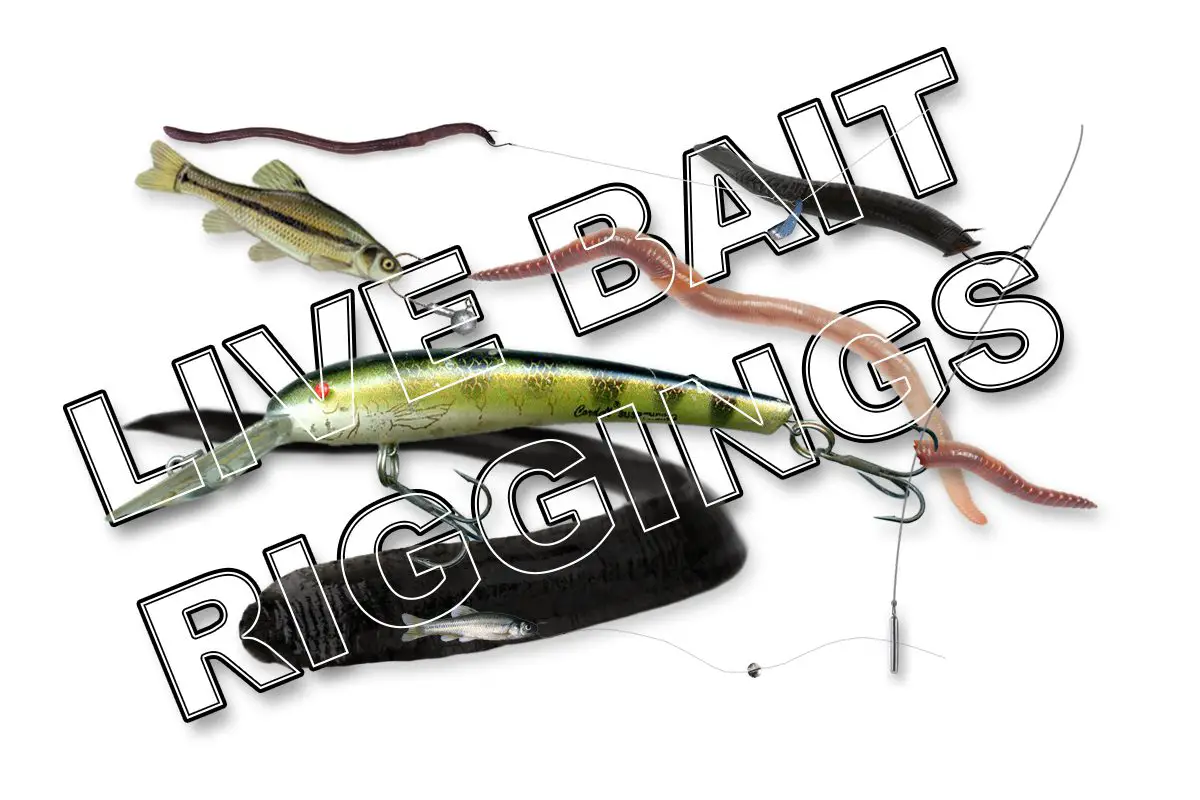Sponsored By Princecraft Boats
Fishing with live bait goes WAAAAAYYYY back into the early ages of fishing. Let’s face it, the idea of inventing and then using a plastic worm vs. using the real McCoy just does not sound reasonable. As well, we know how effective live bait can be. We’re fairly sure that “back in the day” somebody accidentally dropped a live worm into a creek or along a shoreline and a hungry predator fish instantly rushed in and sucked it up! Or, someone saw a cute little minnow swimming in the current only to get pummeled by a freight train of a fish on a mission!
Of course, since those days gone past, artificial lures and baits have pretty much taken over the fishing industry. That said, live bait still has its place.
Here are 10 of our most favourite ways of rigging up those slimy, slithery, hard to hang onto creatures.
1. JIG & LIVE BAIT COMBO
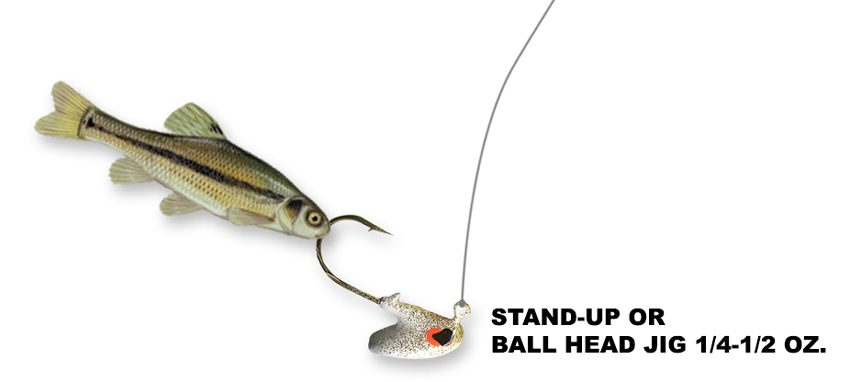
If you have ever travelled to the north country of Canada, and especially into the provinces which have a good Walleye population, then you have certainly run into the “jig & minnow” presentation. Day in and day out, that single presentation will catch Walleye when nothing else will. The approach is simple, a jighead only (no plastic or hair body) tipped with a minnow. That is it!
As well, when the J&M isn’t producing, then tip that jig with either a leech or a worm… all 3 are deadly!
2. DROPSHOTTING LIVE BAIT
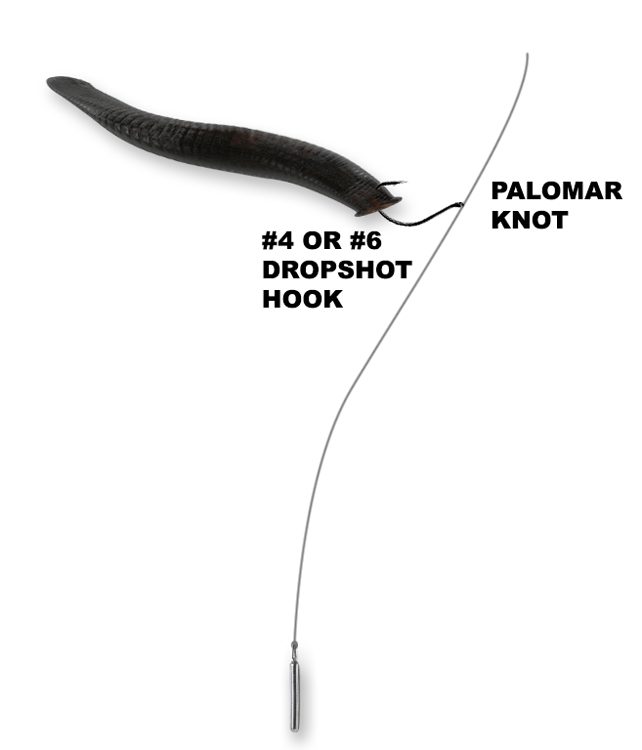
Here’s one that Angelo Viola is nuts for. Ever since he poked his dropshot hook through the sucker of a big fat leech, he’s been hooked as well.
“I remember on a trip to Lodge 88” says Ang “and we were catching lots of Walleye on a jig and leech, but suddenly things shut down. Looking at our sonar, I could see the Walleye had literally lifted from the bottom, suspending a foot or two above. I quickly rigged up a dropshot/leech combo (scroll down to THE FINAL SPOT) and the rest as they say, is history.”
3. LIVE BAIT RIG (aka Lindy Rig)

The Live Bait Rig is one of the absolute best ways of catching fish like Walleye when everything has seemingly shut down. It’s a simple yet effective way of putting a live critter in front of another live critter.
“Once I learned to use a Live Bait Rig” says Pete “my Walleye fishing results sky-rocketed. I remember opening Walleye days when no-one was catching fish by trolling or dragging jigs and I cleaned up with a LBR. It is effective and a fun way to fish.”
A spinning combo is a must as you need to feed line to a biting fish… at least most of the time. Your main line runs through a “walking” slip sinker and attaches to a light mono or fluro leader which has a small live bait hook on the end. A minnow, leech or worm is then put on the hook, the minnow through the lips, the leech through the sucker and the worm through the nose.
Drag it with an open bail, feed a bit of line to a biting fish and set the hook.
It doesn’t hurt to experiment here as well. On a past Fish’n Canada shoot, Pete tried a modified live bait set-up by taking a Slow Death hook and putting a full nightcrawler on it (not the normal procedure) however it caught the biggest Walleye of his trip (scroll down to BIG WALLEYE).
4. WORM HARNESS
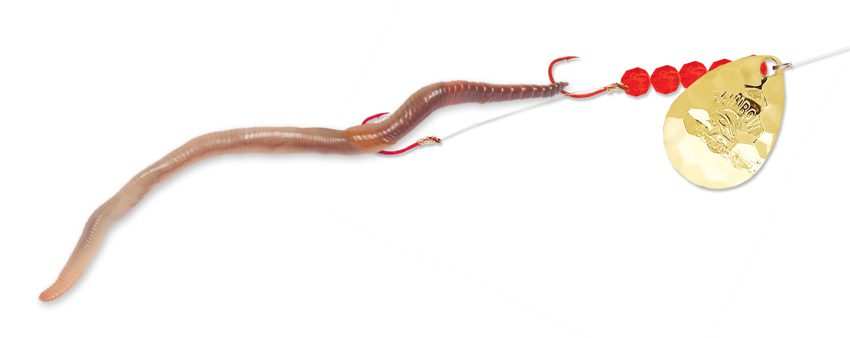
We have mentioned this great invention in previous articles, and we will continue to do so simply because it is a killer rig. Walleye are the main attraction to this type of fishing however Trout are suckers for harnesses as well.
For Walleye, our usual is a 2-hook harness with a single blade. That blade can be silver (sunny days), gold (cloudy days) or a variety of colors (chartreuse or white being two of our favorites). Obviously, a worm is hooked up for bait.
Worm harnesses can be fished either by them selves with some sort of weight in front of them, or they can be fished behind a bottom bouncer. These two depend on the depth of the water. Shallow = sinkers in front. Deep = bottom bouncers (BB rule of thumb; 10’ deep – 1oz BB, 20’ deep – 2oz BB, 30” deep – 3oz BB).
We mentioned Trout here as well and we are referring to the Gang Troll type of harness. For some crazy reason, this odd-looking rig can be deadly on Trout. Attach a minnow or worm on a light fluorocarbon or monofilament leader behind this rig and troll away.
5. ICE JIG & MINNOW HEAD
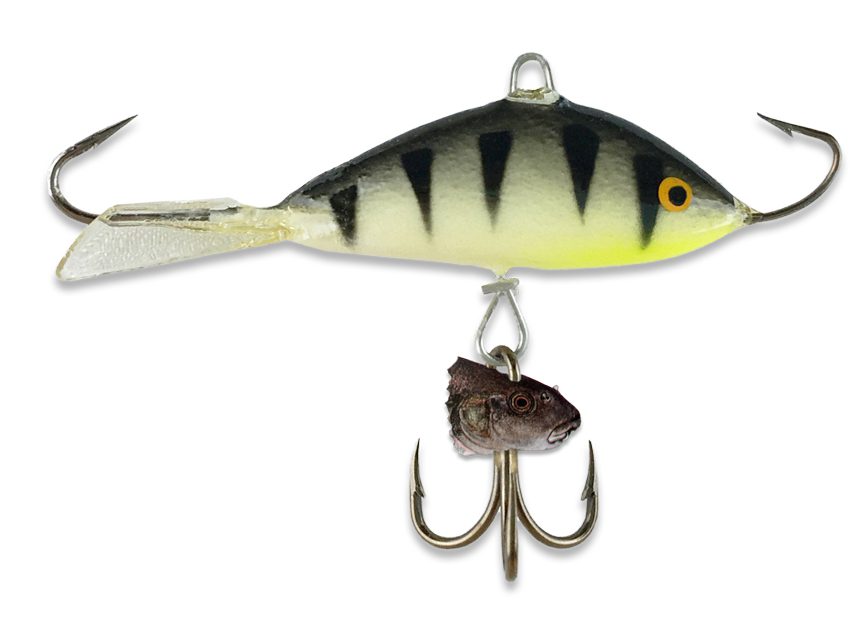
Here is one for you cold water enthusiasts. An ice fishing jig itself, is a deadly bait due to its unique undulating and mesmerizing action. However, when one adds the head of a minnow to this lure, the effectiveness just went up tremendously, especially on those days where the fish activity has slowed down.
You can soon tell if there is a need for tipping an ice jig with a minnow. If the fishing is “hot” in where lots of bites are happening, don’t bother tipping your bait. See if you can get away without it. On anything but gang-buster fishing through, add on the meat!
Oh, and if you are wondering, an ice fishing jig can be extremely effective in open water as you can see on a past trip to Borden Lake… and the fish were so active that live bait wasn’t even needed.
6. SPLITSHOT RIG

This is a fantastic shallow water rig that works well with artificial baits as well. That said, live bait will kick butt when all else fails. This is a multi-species rig in where pretty much any fish will eat it.
The setup is simple. Light line (straight mono, fluorocarbon, or a combination of braid to one of the aforementioned leaders) a splitshot weight and a small live bait style hook.
Lightly lob-cast out this delicate presentation, let out quite a bit of line, and either drift or slowly creep along with an electric trolling motor. You will not believe how effective the Splitshot rig can be! Just ask our buddy Steve Niedzwiecki as he found out on a past Fish’n Canada shoot.
7. CAROLINA RIG

The Carolina Rig was created with artificial baits in mind. Ang and Pete have dragged lizards, craws, and creatures for Bass halfway around Canada with this deadly presentation. What they have not told many though (sorry for spilling the beans guys) is by dragging a chunk of live bait, that Carolina Rig essentially becomes a modified Live Bait Rig.
“Stick that trolling motor on about #3” says Ang “drag this puppy around your lake and hang on!”
If you are wondering what kind of water is “good” for a Carolina Rig, well it works pretty much anywhere… especially when a live piece of god’s creation is on the tail end of it. Our good buddy Ryan Flaro is a huge believer in the Carolina Rig.
8. SLIP FLOAT
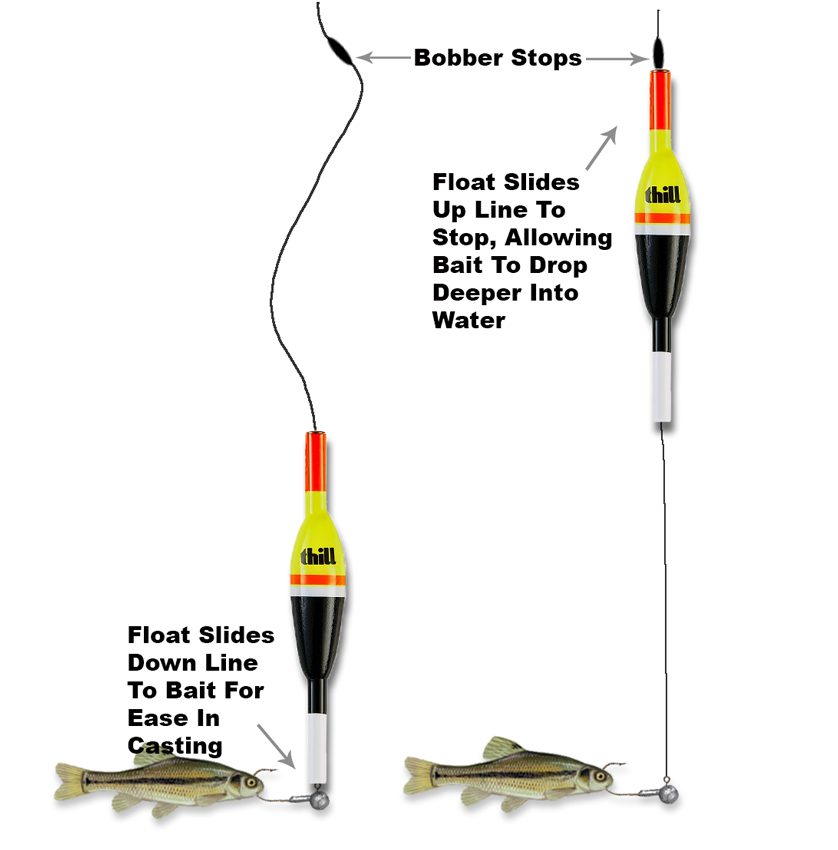
A slip float is one of the most precise methods of “placing” a piece of live bait in front of a gamefish. In a nutshell, it’s a line-through float in where the live bait (normally on a jighead) is cast out, and then allowed to “slip or slide” through the center of the float (due to the weight of the jighead) and then the slipping is halted due to the addition of a bobber stop.
Slip float fishing is deadly where the angler knows the depth of the fish. For instance, if a group of Walleye or Smallmouth are sitting close to the top of a reef or shoal in 12 feet of water, by adjusting that bobber stop so your line drops to about 11 feet, your jig and live bait will be right in the fish’s wheelhouse. They often cannot resist it.
9. INLINE SPINNER & WORM

Okee-Dokee, if there were ever a live bait presentation that could win a popularity contest, then the ol’ Mepps and Worm would give any-and-all, a huge run for the money. It was the presentation of choice back in the day, and it still produces fish after fish to this day! Let’s all be honest here, the Black Fury and nightcrawler is a Walleye slayer.
If it is Trout you are after, then a #0 or #1 silver or gold inline with a worm… shut up!!!
This presentation is a trollers dream. Cast that baby out (being careful not to fire the worm off the hook), let out a desired amount of line, and wait for the inevitable.
10. CRANKBAIT & PIECE OF WORM
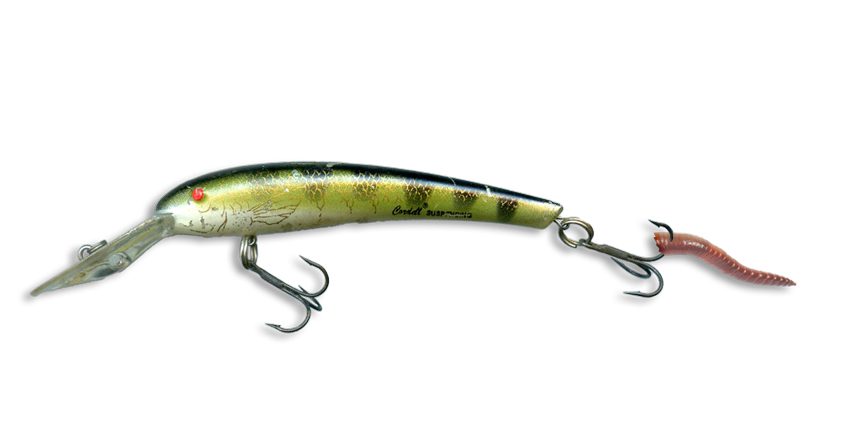
We left this one until last because it is probably the least known presentation or at least used on this list. After all, a Crankbait is a fantastic lure on its own… why add bait, right?
WELL… on those days where a trolling bite is the deal and Crankbait was working BUT… things slowed down, that’s when tipping that back hook with a 1–2-inch piece of worm can work wonders. We have even seen this trick work in 38-degree water temperatures for big, suspended fall Walleye; a time when everyone thinks of minnows as the only live bait that works.
“Often times a Walleye will instinctively follow a bait before striking” says Ang “and with the addition of a small piece of crawler on the back hook of a crankbait, you wouldn’t believe how many fish can be triggered vs. without any live bait… it can be deadly!”
“Here’s a little tip or tidbit from past experience” continues Ang “be careful not to use too much live bait on the end of your crankbait as it will most definitely hinder the natural action of the bait. This is a classic situation in where less is more.”
As for a minnow, it would most definitely work however the minnows fall off too easily, a worm is our bait of choice.
CONCLUSION
How’s that for a unique and info-filled top 10?
As we stated at the head of this piece, live bait presentations will live on forever in our angling lives. The reasoning is simple; when all else fails, live bait is the deal!





